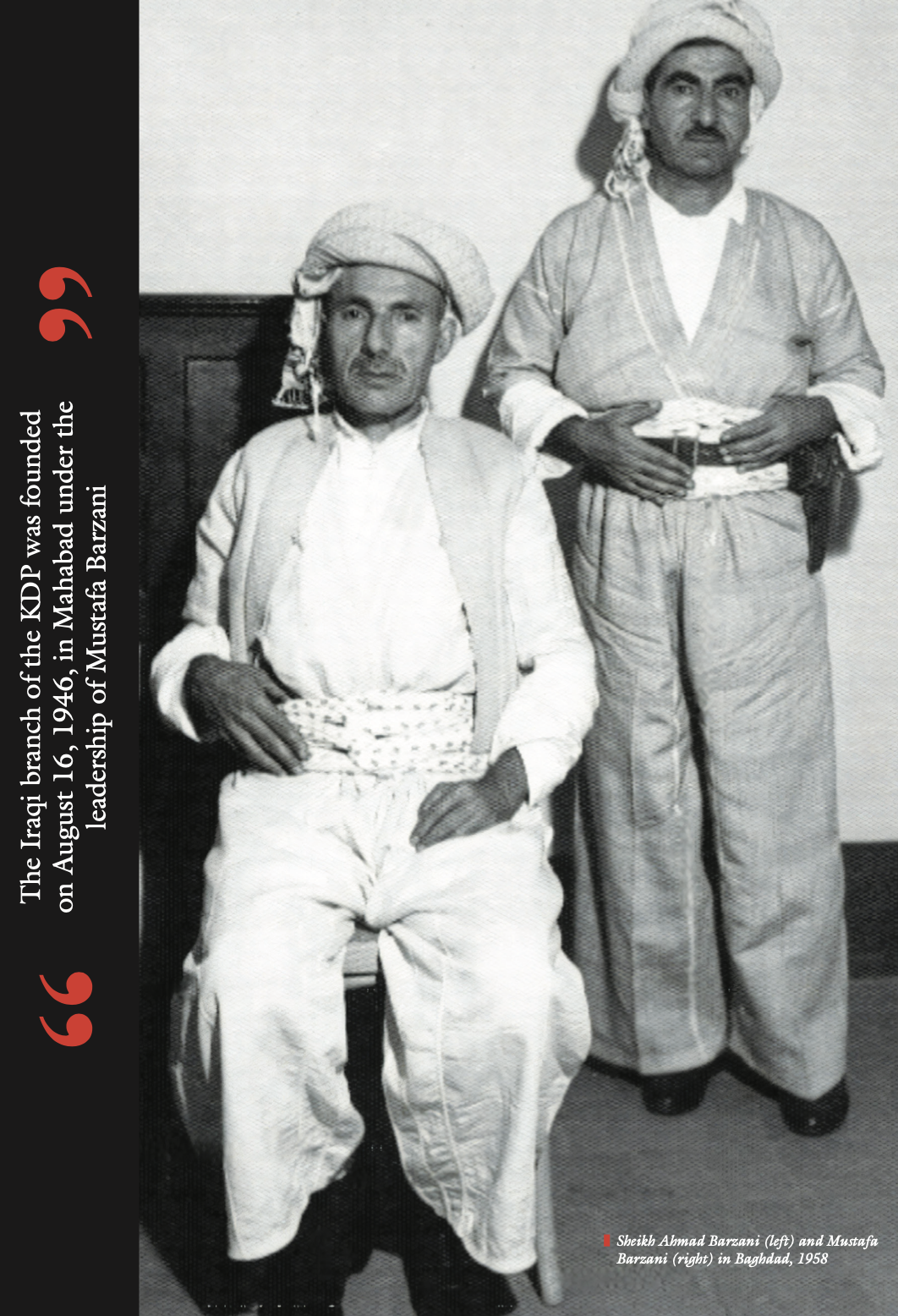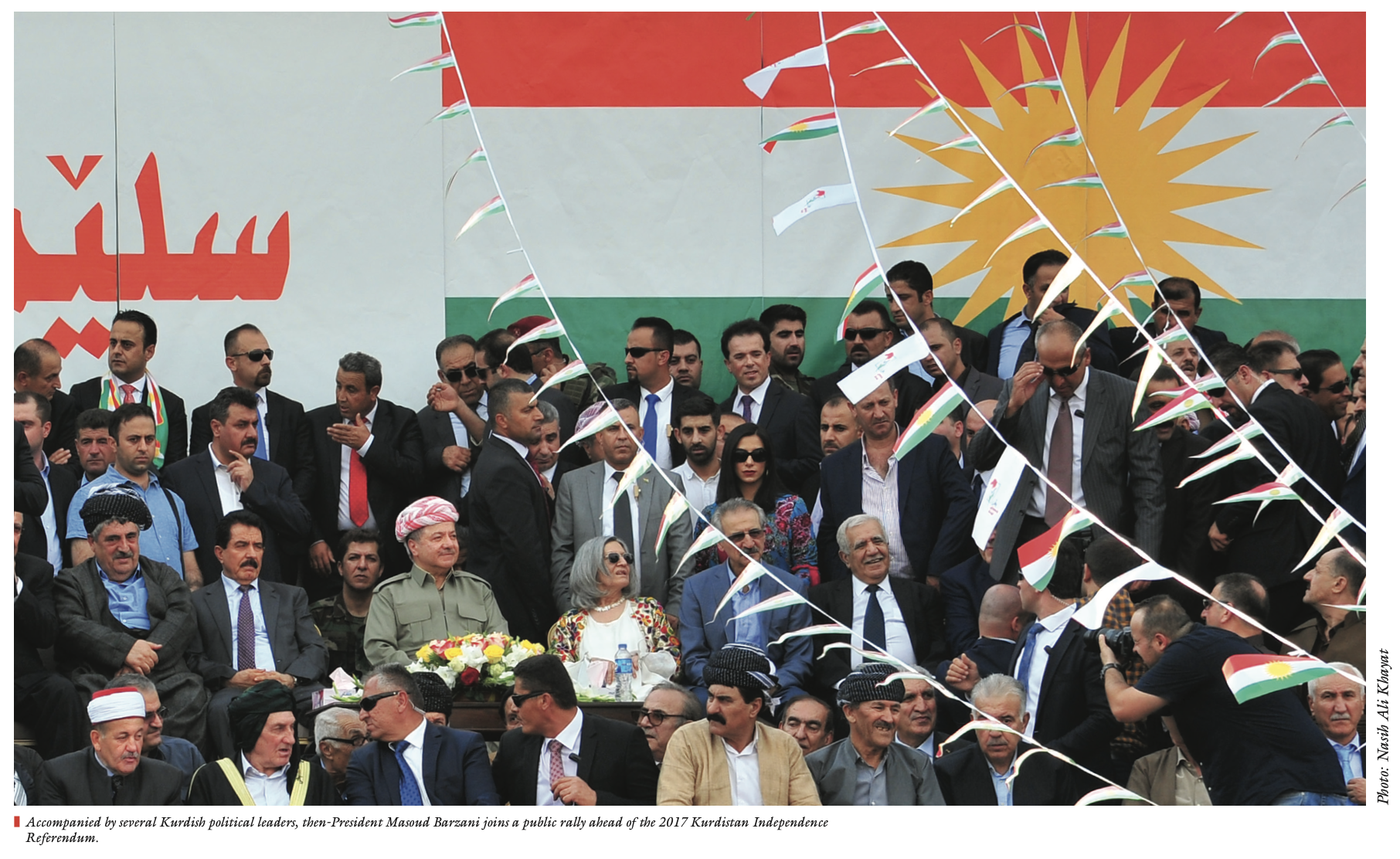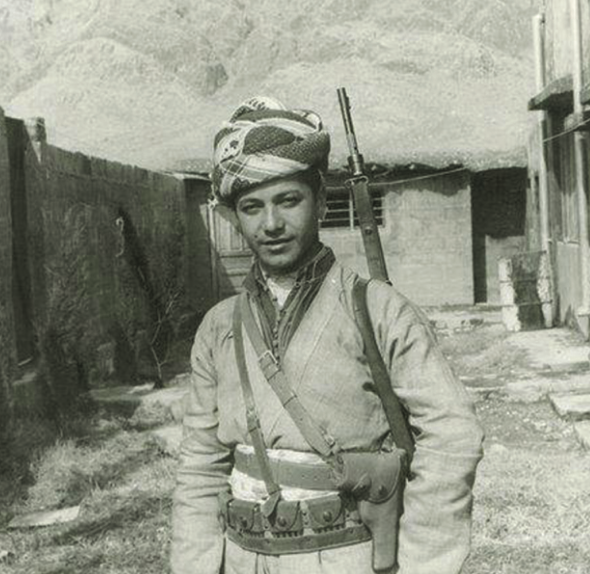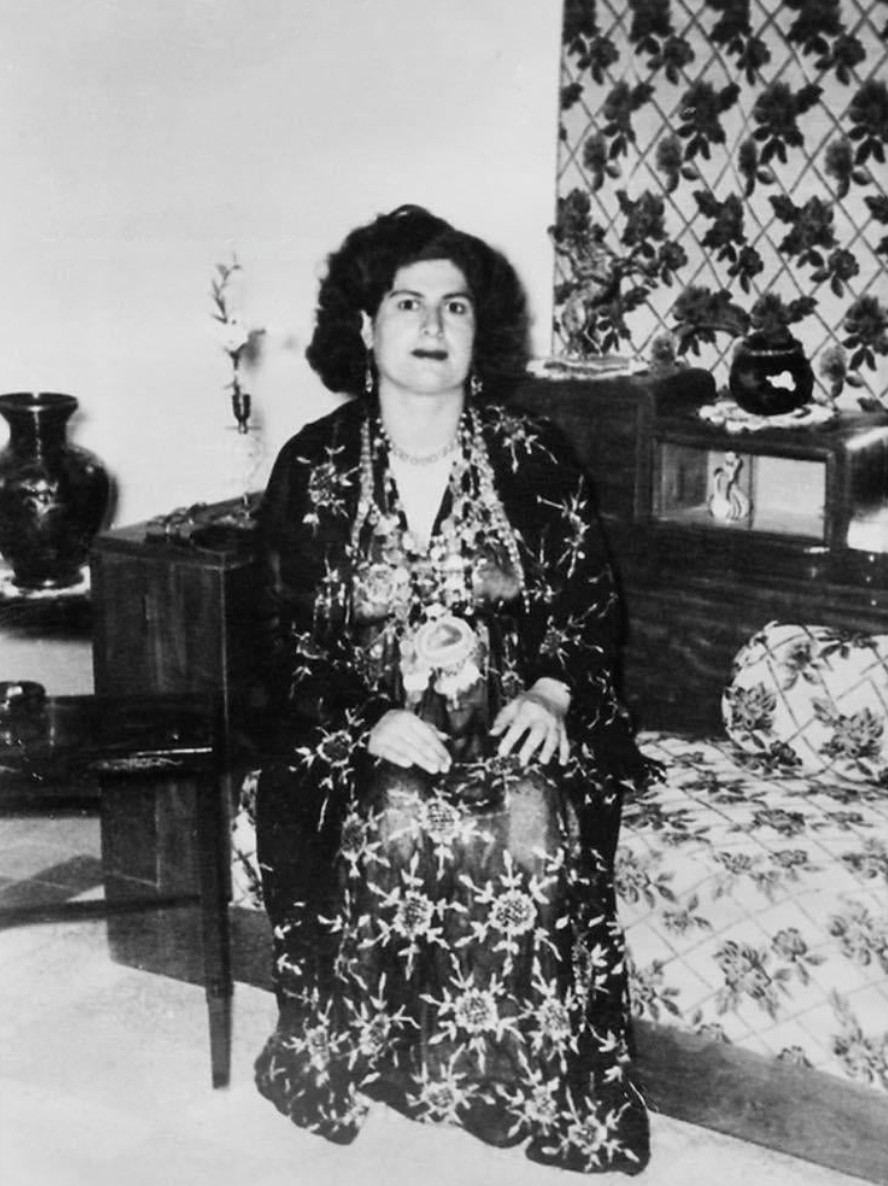This milestone invites reflection on the KDP’s pivotal role in the Kurdish struggle for national freedom, a journey that follows in the footsteps of influential figures such as Abdul Salam Barzani (1864-1914) and Muhammad Barzani (died 1903). The fight for Kurdish rights and autonomy has been championed by notable leaders including Sheikh Ahmed Barzani (1896-1969) and General Mustafa Barzani (1903-1979), whose contributions laid the groundwork for future generations. The struggle persisted through the leadership of Idris Barzani (1944-1987), Masoud Barzani (born 1946), Nechirvan Barzani (born 1966), and Masrour Barzani (born 1969), each playing a significant role in advancing the aspirations of the Kurdish people.
The Iraqi branch of the KDP was founded on August 16, 1946, in Mahabad under the leadership of Mustafa Barzani. Before that, Iran’s branch of the KDP was founded on August 25, 1945, also in Mahabad. The KDP has been influential in the social and political life of the Kurds, with various factions bearing the name Kurdistan Democratic Party emerging since its establishment.

An interconnected political movement
This political movement has closely influenced the political history of Iraq, Turkey, Iran, and Syria. For example, the Kurdish movement carried out by the KDP in Iraqi Kurdistan heavily influenced the military coups and coup attempts carried out in Turkey on May 27, 1960, March 12, 1971, September 12, 1980, and February 28, 1997. I believe that these coups took place so that the development of Kurdish autonomy in Iraqi Kurdistan would not affect Northern Kurdistan (southeastern Turkey) .
On July 14, 1958, a military coup unfolded in Iraq as Colonel Abdul-Karim Qasim and his associates dismantled the royal regime. The violent upheaval resulted in the lynching of 19 officials, including King Faisal II and Prime Minister Nuri Said, who were brutally killed in the streets. Following the coup, the plotters proclaimed the establishment of a republican government. Shortly thereafter, Qasim introduced a provisional constitution that recognized the Iraqi populace as comprising both Arabs and Kurds. In a significant move, he invited General Barzani – who had been exiled in Russia – back to Iraq along with his peshmerga forces.
This led to the legalization of the KDP, which subsequently participated in the new government. These developments were pivotal in prompting the military coup that occurred on May 27, 1960, in Turkey, which curbed any influence these changes might have on the country’s Kurdish population. On the morning of May 27, 486 Kurds in Turkey were detained, including prominent figures such as sheikhs, tribal leaders, landowners, doctors, engineers, lawyers, and students. These individuals were imprisoned in a camp in Sivas as part of operations aimed at instilling fear within the Kurdish community.

In discussions surrounding the May 27 military coup, Turkish universities, media outlets, writers, and intellectuals have largely overlooked this perspective. Instead, they tend to focus on student protests and the government’s loss of control. Given that references to Kurds and Kurdistan are often marginalized or denied in discourse, it is unsurprising that developments in Iraqi Kurdistan are rarely cited as factors contributing to the military coup.
On March 11, 1970, General Barzani, president of the KDP, and Saddam Hussein, Deputy Chairman of the Iraqi Revolutionary Command Council, formalized an autonomy agreement for Kurdistan, which encompassed the provinces of Erbil, Sulaymaniyah, and Duhok within the designated autonomous region. Additionally, it addressed territories that were excluded from Kurdistan. This development was a significant factor leading to the military intervention in Turkey on March 12, 1971, to curb the influence of the autonomy process in Iraqi Kurdistan on Kurds in Turkey.
In subsequent years, the Kurdish movement spearheaded by the KDP continued to shape events among the Kurds in Turkey. The KDP’s influence was particularly notable during its collaboration with the Patriotic Union of Kurdistan.
Throughout the genocidal Anfal campaign, which began in 1982, the KDP faced immense adversity. In a tragic event that year, 8,000 Barzani men were forcibly taken from Iraqi Kurdistan and buried alive in the deserts of Basra. This dark chapter lasted until late 1988, marked by horrific incidents such as the chemical attack on Halabja on March 16, 1988, which resulted in the suffocation of countless Kurds. Overall, approximately 182,000 Kurdish lives were lost during this genocide. Despite these harrowing circumstances, the KDP adeptly navigated this crisis while striving to safeguard itself and its community.

The harsh reality of escape from Kurdistan
News reports frequently highlight the perilous journeys undertaken by individuals fleeing Kurdistan for European nations. These escapes come at a significant cost, as human traffickers impose exorbitant fees on those seeking a better life. The journey is fraught with challenges, including the risk of drowning at sea, becoming lost, facing humiliation at border crossings, and suffering from hunger, thirst, and extreme temperatures. Tragically, many lose their lives in these desperate attempts.
Despite these dangers, the exodus persists. Kurds often sacrifice their possessions and even their loved ones to the networks of traffickers. Even for those who manage to reach their desired European destination, it is a stark reality that they may not find the conditions they hoped for; in fact, living conditions in Kurdistan may be more favorable than what awaits them abroad.
This phenomenon may stem from a lack of developed Kurdish national consciousness among the Kurds. It is striking that despite decades of dedicated struggle since the 1960s, this sense of identity remains underdeveloped.
In light of this situation, the Kurdistan Regional Government bears a significant responsibility. It must implement educational programs aimed at fostering awareness of Kurdish heritage and identity across all levels of schooling. Bringing these initiatives to fruition is essential.
İsmail Beşikci is a Turkish sociologist, philosopher, and writer. He has served 17 years in prison on propaganda charges stemming from his writings about the Kurds in Middle East.

